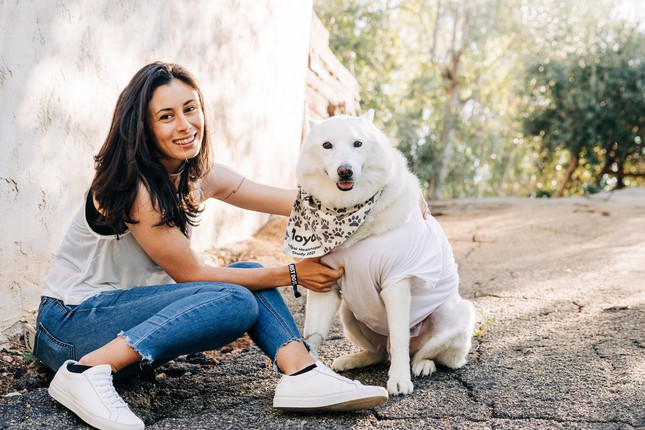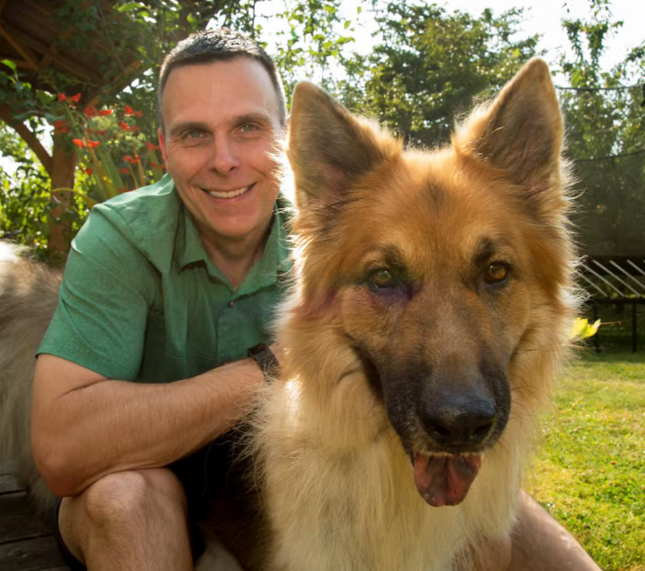They have been our companions for thousands of years. Uncles dog help us live longer, healthier lives. But now, the pioneers in the field of biotechnology against aging trying to stretch longevity of dogs as a way to help humans do the same.
Ms. Celine Halioua is the CEO of Loyal – a veterinary medicine company in Silicon Valley (USA). She is trying to prove that “old age is a treatable thing” and that prevention is better than cure. Ms. Halioua argues that developing drugs to treat the chronic diseases we get as we age is just like trying to prevent dykes from bursting. If you successfully treat one disease, another will inevitably emerge.
“Performing a 40-year human study on anti-aging is one of the most complex and expensive medical studies ever conducted,” Halioua said.
To date, most anti-aging studies in animals have been limited to mice, which have been kept in sterile laboratories, and bred specifically for that purpose. But Ms. Halioua believes we share more in common with pet dogs.
“Dogs and humans live in the same environment, they have the same aging-related diseases as we do at the same age. Tests with dogs are cheaper and quicker to do, and carry great benefits to the owners,” explained Ms. Halioua.
Loyal has just launched X-Thousand Dogs, a program to recruit dogs to participate in a study that tracks changes in DNA biomarkers. This is a large data collection project designed to inform a future veterinary anti-aging drug.

In the public eye, anti-aging biotechnology has long been seen as the unrelenting obsession of the wealthy. But in fact, veterinary anti-aging studies have been made easier by dog owners who want to prolong the quality and quantity of time they have with their pets.
Loyal shares some similarities in her quest for “big data” with a giant American scientific study – the Dog Aging Project (DAP).
 Professor Matt Kaeberlein with his dog Dobby |
The project is funded by the US National Institute on Aging. Although the DAP is a veterinary study, the project’s co-directors Professor Daniel Promislow and Professor Matt Kaeberlein wanted to apply these findings to the study of human aging.
Professor Kaeberlein attributes the DAP’s hugely successful recruitment campaign to Americans’ love of dogs. “It has resonated with the public in a way that very few scientific projects have,” he said.
To date, 39,000 owners have enrolled their dogs in the DAP study, which tracks aging from birth to the end of life. As a large-scale public science project, DAP collects data on the aging process of dogs over the next 10 years. Professor Kaeberlein believes that from there they can discover many interesting things about their owners.
“We already know that dogs age seven times faster than we do,” said the professor. “If we can understand what drives these biological aging mechanisms, there’s no reason why we can’t.” impact on life expectancy in dogs and then in humans.”
DAP has two basic goals: first, to understand the influence of genes, lifestyle, and environment on aging; and second, interventions to increase “healthy age” – the length of time to live disease-free.
As for the company Loyal, it hopes to develop its own huge data set to inform future experiments. The company is particularly interested in changes in the shape of DNA, which can be used to predict future health.
Despite the disruptions caused by the pandemic, Loyal still wants to bring an anti-aging veterinary drug to market by 2024. “Our goal is to get the first drug approved for the aging process. chemistry – something that people previously thought could not be treated,” Halioua said.
As a pioneer in a new field, Ms. Halioua believes: “At the moment, anti-aging medicine is seen as weird or unusual, but we wanted to make it as normal as possible. It had to be universal. such as researching drugs to treat diabetes, cancer or osteoarthritis,” she said.
at Blogtuan.info – Source: Soha.vn – Read the original article here



